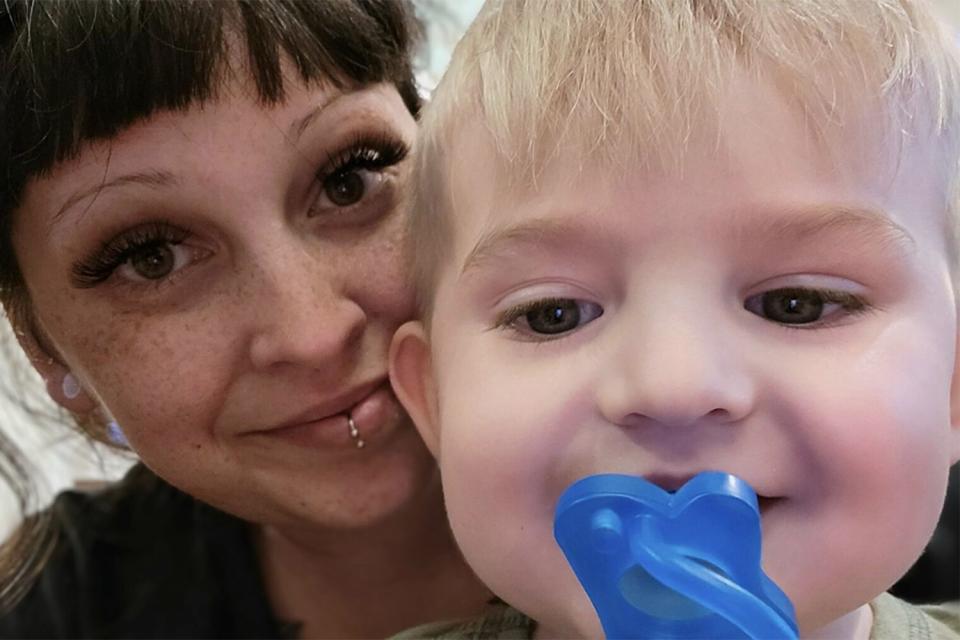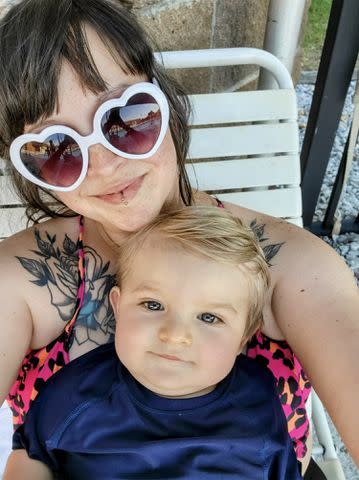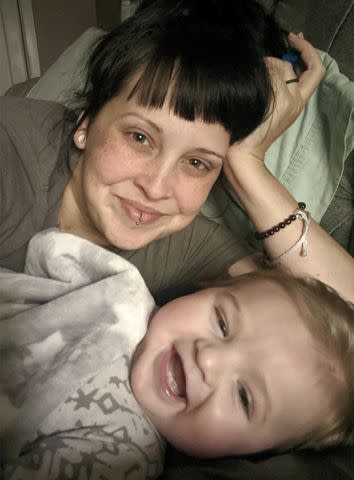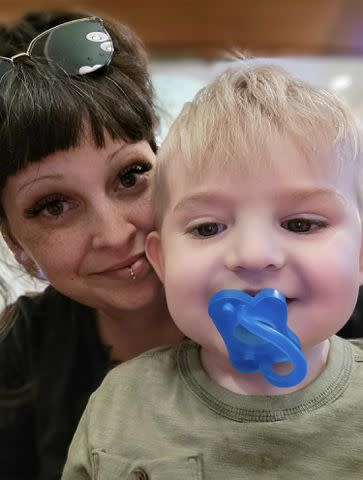Mom Was 'Constantly Angry' amid Postpartum Depression, Says New PPD Pill Helped Her Heal: 'The Clouds Cleared' (Exclusive)
Ashlee Martinez was in a clinical trial for zuranolone, the first oral pill to treat symptoms of postpartum depression, which was approved by the FDA in August

Courtesy Ashlee Martinez
Ashlee Martinez and her son Quentin at home in Fayetteville, Arkansas.Ashlee Martinez had never been an angry person — until her son Quentin was born in April 2020.
“All I did was yell,” says the 40-year-old from Fayetteville, Ark., of the raging months following Quentin’s birth. “If someone even breathed next to me, I was furious.”
At the time, she thought she had plenty of “reasons” to be angry. Like so many moms who had kids during the pandemic, Martinez faced anxiety and panic about lack of childcare. She even had to quit her job, which she loved, to find a work-from-home position.
There were other stressors, too, like how she wanted to breastfeed but received no emotional support from doctors when she faced challenges. She was also leaning into her new role as a stepmom. Her husband Mitchell, whom she married in 2018, had three teenagers from a previous marriage. “I was a new person walking into their lives,” says Martinez. “There were growing pains and tension.”
So although Martinez was “crying every day,” she still felt like she could explain it away.
“I could justify every single thing that I was angry about,” says Martinez, who now works in human resources. “I thought to myself, ‘I know why I am feeling this way. I can blame it on this or that or this other thing. I'm not depressed. This is not postpartum depression. Because I understand why this is happening to me. I know why I’m angry.”

Courtesy Ashlee Martinez
Ashlee Martinez and her son Quentin.Martinez was slowly losing her ability to communicate in a calm way. Instead, she found herself overreacting to everything. “There was no regular conversation. It was just constant anger,” says Martinez, who had no recollection of feeling this way after the birth of her first child, Greyson, who is now 14.
Her relationship with her husband was also suffering. “Before this, Mitchell was always really supportive. He was always willing to sit down and ask me, ‘What do you need? What can I help you with? What can I do? How can I help the situation?’”
But that summer, it didn’t matter what he asked.
“I wasn't able to process. I wasn't able to say, you know, this is what's bothering me. Let's talk it out. Let's see if we can come up with a resolution. I couldn't do that.”
“He had a breaking point with me because there was no understanding at that point. I wasn't understanding what I was going through, so there's no way that he understood what I was going through," she says.
Martinez remembers him saying that he didn't know what to do. "He said, 'I'm trying to be there for you. I'm trying to be helpful. I'm trying to be supportive. But you just keep knocking me down. And I don't know where to turn.’”

Courtesy Ashlee Martinez
Ashlee Martinez struggled with postpartum depression after the birth of her son Quentin.By the fall, she realized how bad things had become.
“It finally got to a point where I was like, this is not OK. It's poisonous. It is making me physically and mentally unhealthy.”
She started doing her own online research about her symptoms. "I found out that anger is one of the ways that you can have postpartum depression. I didn't know that. I thought it was just sadness."
Postpartum depression is a severe, long-lasting form of depression, according to the Mayo Clinic. Symptoms may include mood swings, excessive crying, irritability or anger, withdrawal from friends and family, hopelessness and more.
More online research eventually led Martinez to sign up for the clinical trial for zuranolone, the first oral medication for PPD. Prior to zuranolone, women had to receive IV infusions in medical offices — and the treatment was not widely available.
Related: Brooke Shields Reveals Daughters' Reactions to Talk of Postpartum Depression in New Documentary
Martinez joined the trial and started taking the medication in October 2020. “The benefits weren't immediate but I felt them within the week," she says. “It's like the clouds cleared."
"I was able to have conversations with my husband again about what was frustrating me. That’s really where I saw the huge difference — I was processing again.” Suddenly she was able to think again.
"Zuranolone didn't make me the happiest person in the world it, not like a fake happy. It was still work, but I was able to see things more clearly."
Martinez took zurnanolone once a day for two weeks. "By the end of that time I went in to the research room almost bouncing. I was almost like jumping in the door, like I was so good with everything."
She says she will never forget what it was like to come in at the end of the trial and report her results. “I was so light,” she says. "Everything had been lifted and I was on such a path forward. It really was night and day.”

Courtesy Ashlee Martinez
Ashlee Martinez and Quentin.Zuranalone was approved by the FDA in Aug. 2023 and is expected to be available by the end of this year. The cost is still being determined.
Martinez looks back on the experience with gratitude that she took matters into her own hands. "If anyone had asked me if I was ok, I would have told them I was fine," she says. "I am a mom. I have too many important things to do, and people who rely on me." But, she adds, knowing that her family needed her so much actually pushed her to get help.
"Finally admitting that I was not fine led me on my path to better health," she says. "I'm so happy I took that step."
She encourages other moms to prioritize their mental health and to have a conversation with a healthcare provider if they feel unlike their normal selves. "Speak up for yourself," she says. "There are a lot of little things along the way that may have contributed to my spiral — I could have spoken up a little louder and had a different experience."
For more People news, make sure to sign up for our newsletter!
Read the original article on People.

